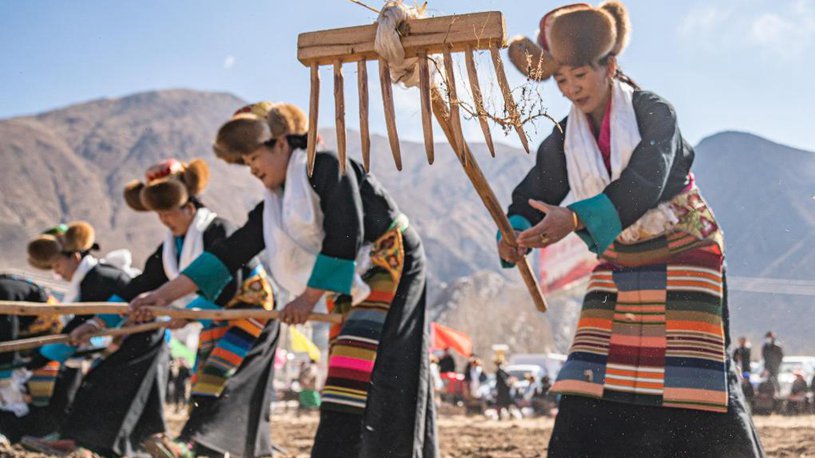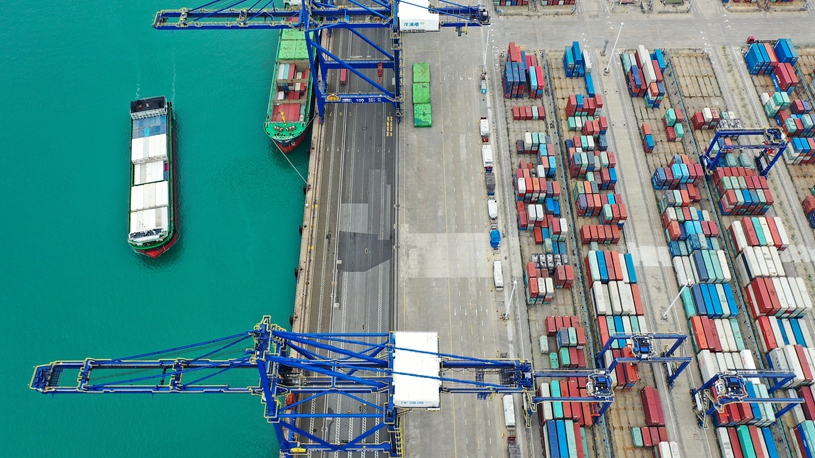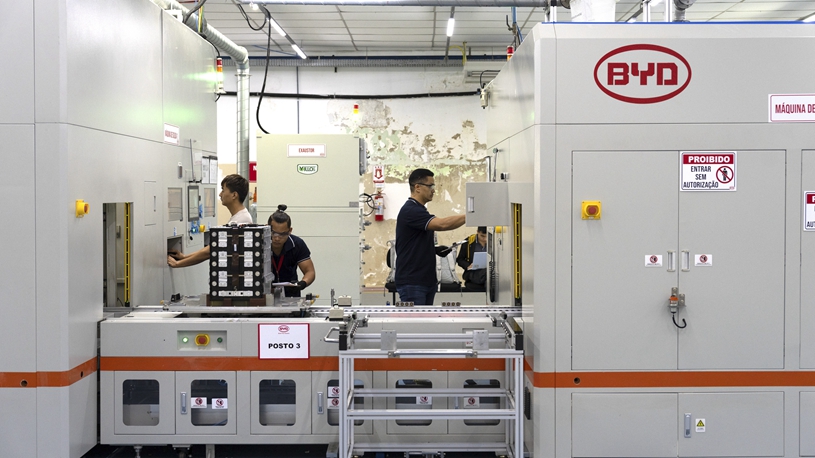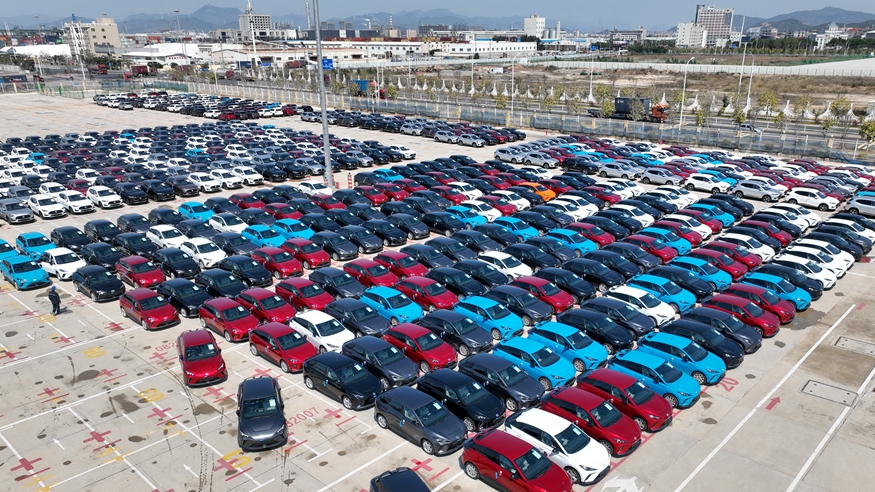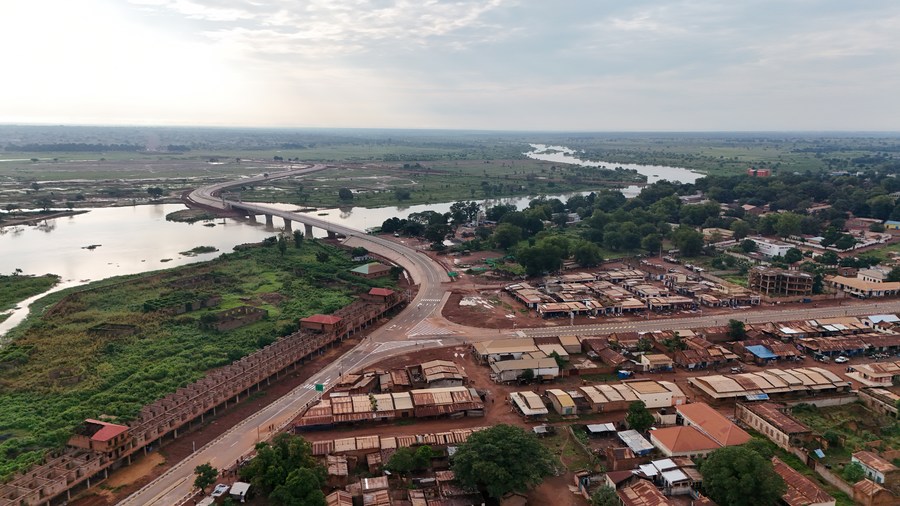
This undated aerial photo shows the newly completed Jur River Bridge, constructed by Chinese company Tianyuan Group, in Wau town of Western Bahr El Ghazal in South Sudan. (Denis Elamu, Tianyuan Group/Handout via Xinhua)
South Sudan on Saturday announced an indefinite closure of all schools as a result of heatwaves over the past few days with very high temperatures both during the day and night.
JUBA, March 17 (Xinhua) -- South Sudan on Saturday announced an indefinite closure of all schools as a result of heatwaves over the past few days with very high temperatures both during the day and night.
Yolanda Awel Deng, minister for Health, said most parts of South Sudan are experiencing a heatwave expected to last at least two weeks with temperatures ranging between 41 degrees and 45 degrees Celsius.
"The government has decided to take the following measures, one, close down all schools with effect from March 18, two, during the closure of the schools, parents are advised to stop their children from playing outdoors for prolonged periods and they should also monitor children, especially the young ones, for signs of heat exhaustion and heatstroke," Awel told reporters in Juba, the capital of South Sudan.
She said heatwaves can acutely impact large populations for short periods, often trigger public health emergencies, and result in excess mortality and cascading socioeconomic impacts like loss of work capacity and labor productivity and can also cause loss of health service delivery capacity, where power shortages which often accompany heatwaves disrupt health facilities.
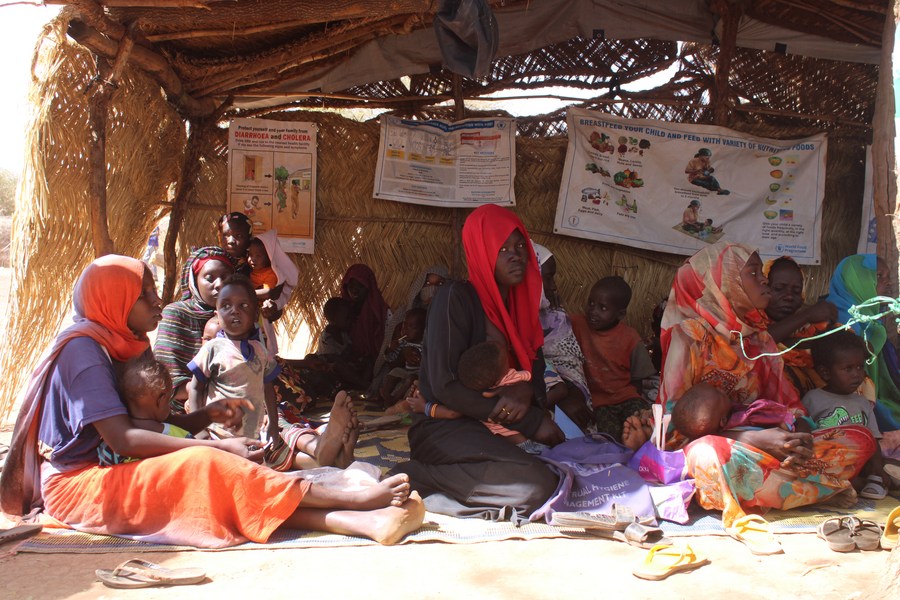
Sudanese refugee mothers wait to immunize their children at a health center in Akuom Boma, Northern Bahr El Ghazal State, South Sudan, on Feb. 28, 2024. (Photo by Denis Elamu/Xinhua)
Awel said her ministry's disease surveillance department has put a system in place to detect and respond to cases, as there are already cases of death related to excessive heat being reported in South Sudan.
Joseph Africano Bartel, undersecretary for Environment in the Ministry of Environment and Forestry, said climate change is becoming a global phenomenon in which South Sudan will be experiencing a lot of temperature fluctuations.
He advised schools to make sure that they have good ventilation, install solar panels such that they will be able to have fans working, and also to make sure that trees are planted in compounds to produce microclimate.
Africano called on developed countries to cut emissions, warning South Sudan will experience the unusual impact of climate change soon including heavy rains, floods, and droughts. ■

